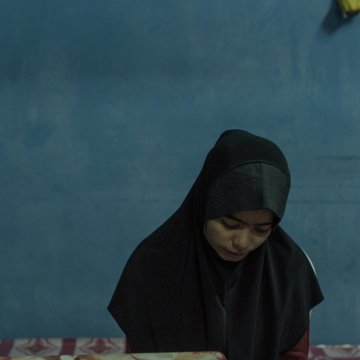- About
- Topics
- Picks
- Audio
- Story
- In-Depth
- Opinion
- News
- Donate
- Signup for our newsletterOur Editors' Best Picks.Send
Read, Debate: Engage.
The scale of transnational human trafficking is emerging, which also includes links to state officials. Trafficking camps exist in southern Thailand, where mostly male migrants have been sold to Thai fishing boats to work as slaves. Some individual testimonies from trafficked individuals claim that some state officials were complicit in trafficking, with some migrants even sold to intermediary brokers from state-run detention centres. Individual slaves have claimed how they have had to spend up to four years on boats without once being allowed on land.
The Bangkok-based Fortify Rights, said the link between the camps and the fishing industry was not new; indeed, they claim that the camps have a long history. Which means that some seafood on the shelves of major European and American supermarkets has almost certainly been procured by slave labour.
The EU has responded with threats of a severe trade restriction on Thai-imported seafood, and the Thai government has tried to stave off such measures by implementing hasty and clumsy-looking administrative codes. They face pressure from the Thai fishing industry however, who say that the measures have severely limited their ability to conduct their trade.
The state-sponsored ethnic cleansing that the migrants fled earlier this year has been the first of their troubles. Displaced people have since faced greater struggles, including many left abandoned in boats, refused entry to Malaysia, Thailand and Indonesia.
Recently, jungle camps in both Thailand and Malaysia were also discovered, where people were held as prisoners, ransomed to their relatives. They were also subject to rape, torture and murder.
While trade restrictions are a good start to bring human rights to the attention of senior officials, more needs to be done to help these people, including support of organisations like Fortify Rights and the Alliance to End Slavery and Trafficking, who will help put pressure on the Thai government.
Image: The Guardian
